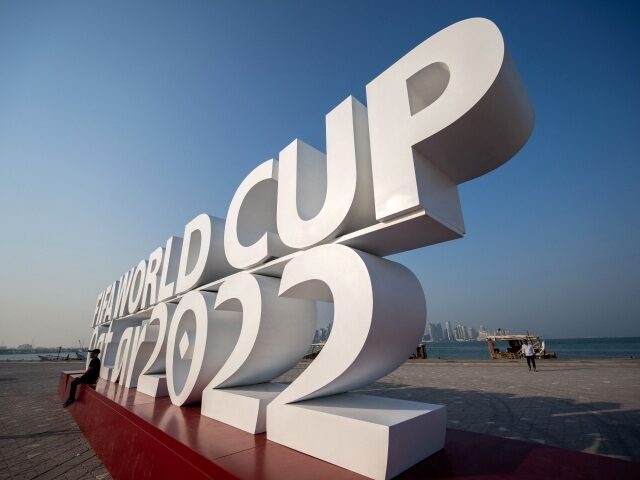Sheikh Tamim bin Hamad al-Thani, the emir of Qatar, complained on Tuesday that his country has faced unfair criticism for its abusive labor practices in the run-up to the 2022 World Cup soccer tournament, which begins on November 20.
“Since we won the honor of hosting the World Cup, Qatar has been subjected to an unprecedented campaign that no host country has ever faced,” Sheikh Tamim said.
The emir claimed his government “initially dealt with the matter in good faith,” embracing some criticism as “positive and useful,” but has become exasperated by a slander campaign that includes “fabrications and double standards that were so ferocious that it has unfortunately prompted many people to question the real reasons and motives behind the campaign.”
“We accepted this challenge out of our faith in our potential, we the Qataris, to tackle the mission and make it a success. It is a championship for all, and its success is success for all,” he told a meeting of the Shura Council, the Qatari national legislature, whose members the emir directly appointed until the first legislative elections were held one year ago.
The criticism al-Thani dismissed as slanderous involves Qatar’s well-documented tendency to pay extremely low wages to foreign workers, including the roughly 30,000 migrants imported to work on the seven World Cup stadiums, and abuse those workers in various ways – from arbitrary arrests to physical assault.
Qatar, like other Gulf Arab states, uses a migrant labor system called kafala in which companies sponsor foreigners to obtain work and residence permits, and cover the costs for the workers to reach Qatar from Asia and Africa. The kafala system makes these workers virtually the property of their sponsoring companies, who can get them arrested or deported if they complain too strongly about working conditions or demand higher wages.
Critics say Qatar implemented some improved labor laws after it secured the 2022 World Cup, becoming the first Arab state to host the event – but these improvements were largely cosmetic, the new laws have not been vigorously enforced, and migrant workers are still widely abused.
Human Rights Watch (HRW) suggested on Monday that if the emir sincerely wants to rehabilitate Qatar’s image, he might try using some of his surging oil revenue to reimburse workers who complain about their already-low wages going unpaid for months on end.
“Deaths and harm cannot be undone, but for so many migrant workers and families waiting for compensation, some financial assistance – a slender slice of the huge profits from the event – could have far-reaching consequences. A large-scale attempt to give back to those migrant workers short-changed while making the World Cup possible would send a powerful, positive message from FIFA and Qatari authorities,” HRW proposed.
France24 reported on Tuesday that traditional “fan zones” in Paris and Berlin, where soccer fans can gather and watch the games on giant screens, will not be set up for the 2022 World Cup in protest of Qatar’s abuses of migrant workers, homosexuals, and the environment.

COMMENTS
Please let us know if you're having issues with commenting.